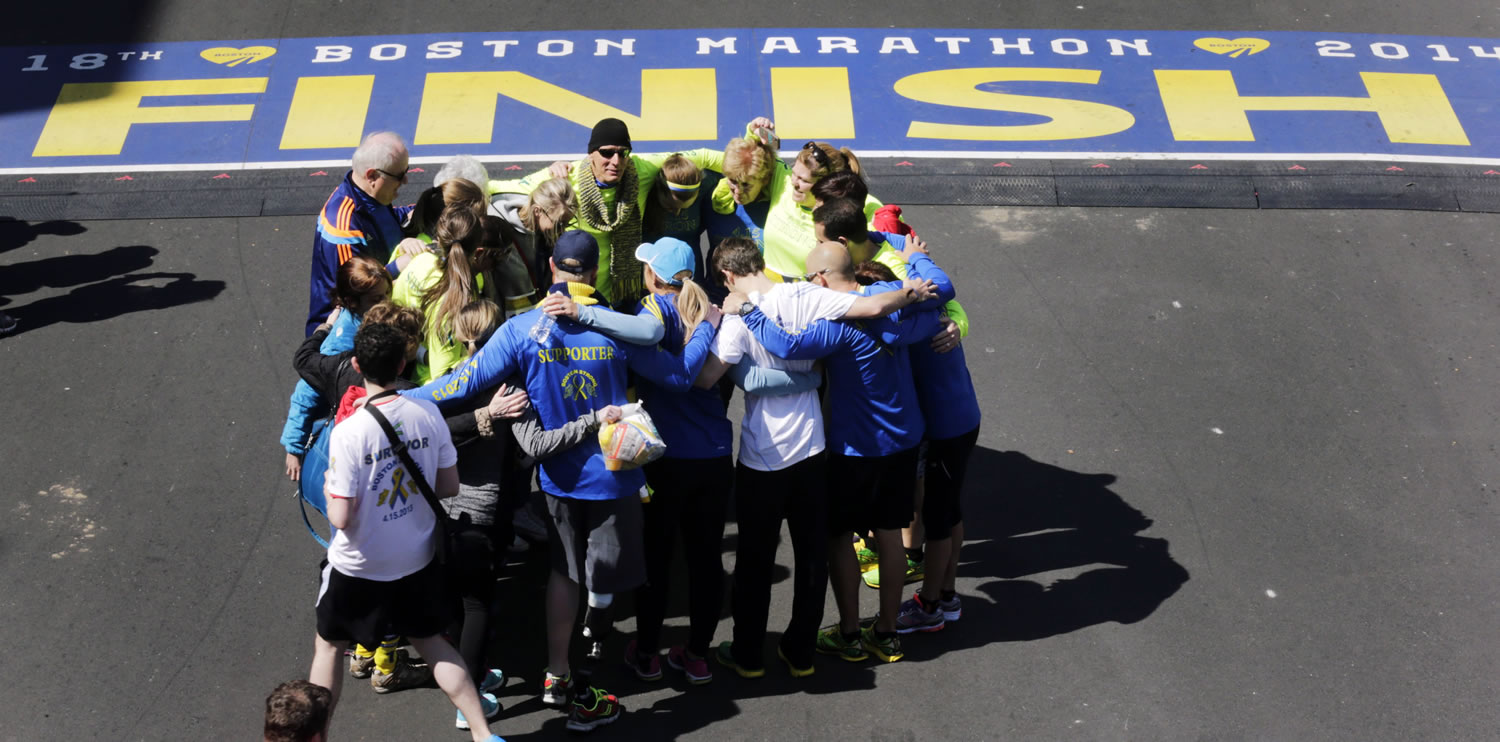WASHINGTON — Dr. Alexander Garza, associate dean at St. Louis University’s College of Public Health and Social Justice, will be watching news from the Boston Marathon on Monday a little differently than most Missourians.
Last year, on the day that two suspected terrorists shocked Boston and the world with bombs near the race’s finish line, Garza had just resigned as one of the top anti-terrorism officials with the Department of Homeland Security to take the SLU job.
Watching the aftermath of the bombing on television that day, the former chief medical officer for Homeland Security noticed something very important. He saw the widespread use of improvised and medical tourniquets as a testament to the constant learning and adaptation that Americans have undergone since the 2001 terrorist attacks.
As a young emergency medical technician trainee in the mid-1980s, Garza had been taught that tourniquets like the ones he saw being applied in Boston would damage tissue and potentially cause more harm than good. But a decade’s experience fighting in Afghanistan and Iraq, he said, proved that medical dogma wrong. The Bronze Star winner saw soldiers saved by tourniquets as an Army Reserve special investigator for Army Maj. Gen. Raymond Odierno, that branch’s current chief of staff, during the Iraq War.
Garza said use of the old-fashioned tourniquet helped save lives in Boston, where three died and more than 260 were injured by two bombs allegedly set off by two purportedly terrorist-radicalized brothers named Tsarnaev.
“The tourniquet now is back in the mainstream,” Garza said, and “so you saw that translating to civilians at the Boston Marathon.”
Now, Garza and others said, some lessons from Boston have been absorbed by other big cities that host iconic events, including St. Louis. Police Chief Sam Dotson said St. Louis took a hard look at its security strategy for special events after the Boston bombing, including last year’s Susan G. Komen Race for the Cure through downtown.
Dotson said the city did several things differently in that event, including running background checks on race volunteers, dispersing undercover officers in the crowd, deploying more officers with video cameras and placing K-9 units at the starting and finish lines.
“It’s very difficult for any city to cover the entire route, but we did our best,” Dotson said.
Dotson said that the city continues to develop its strategy to deal with security at big events. During the World Series at Busch Stadium last year, he said, city officials monitored air quality and established a system where law enforcement officials could monitor local hospitals and health statistics in real time.
And in a nod to the learn-and-adapt strategies necessary in the terrorism age, the chief added: “I’m sure Boston did a great job before the bombing. I’m sure they do an even better job now.”
Civilians and runners flooding the streets of Boston and its neighboring boroughs Monday will enter a different setting than they saw last year. Some measures — including a crackdown on backpacks, more plainclothes officers roaming the crowd, bomb-detonation squads from other cities, armed National Guard troops, tighter entrance security in areas where large numbers of spectators congregate — will be easily noticed. Other measures might be less so. One most likely will involve cellphones, one security expert said.
“I am guessing at various times you will have trouble using your cellphone” because of “jamming” measures developed in Iraq to disrupt potential bomb detonation, said Steve Bucci, a former Army Special Forces officer and Iraq War veteran who now heads the Heritage Foundation’s “Protect America” initiative.
The idea, Bucci said, is to disrupt any plans to use a phone to remotely trigger a bomb.
In retrospect, Bucci said he thinks the Boston Marathon bombing “was a reawakening” of the idea “that we still have to be cautious, that we still are under the threat of terrorists.
“The war on terror is not over, because the other side has not given up yet,” he said.
Bucci said he believes corporate America and civic leaders remained tuned into the threats far more than average citizens. He got a glimpse of the difference while speaking last month to St. Louis business leaders at a cybersecurity conference in the city.
“There was a heck of a lot of interest in understanding cybersecurity and understanding how the things they are in charge of are potentially at risk, and the kind of stuff these leaders need to do” to combat it, he said.



